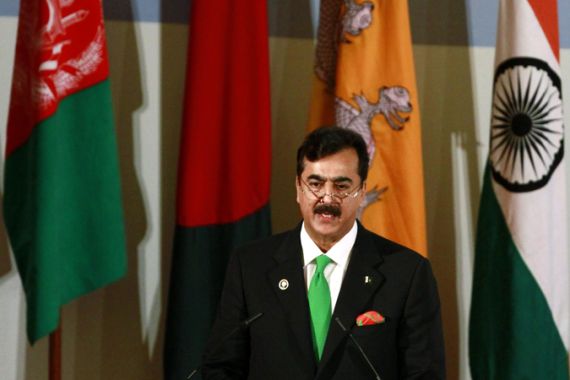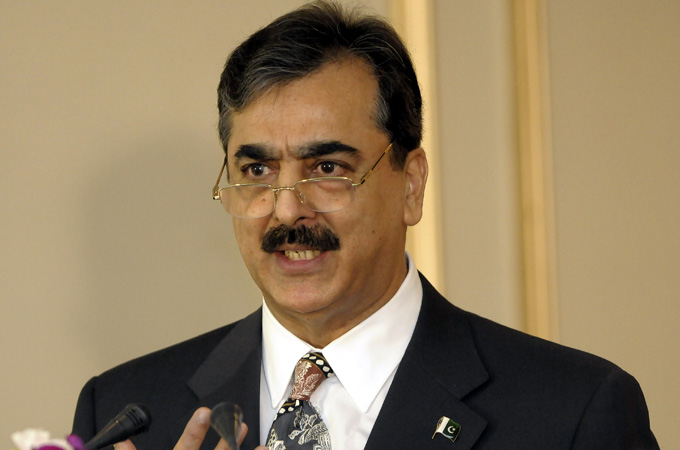Profile: Yusuf Raza Gilani
Longest serving PM in Pakistan’s history served almost four years before being disqualified by the supreme court.

 |
| Pakistani Prime Minister Yousuf Raza Gilani has come under intense judicial pressure [EPA] |
Yusuf Raza Gilani, the longest serving prime minister in Pakistan’s history, was nominated by a coalition parliament in 2008 and served almost four years – a first for Pakistan and for his party.
He was disqualified from his post by the supreme court in June 2012, after he was declared to be contempt of court on April 26, 2011, for failing to comply with court orders relating to reopening decades-old corruption cases against President Asif Ali Zardari and Zardari’s wife, the late Benazir Bhutto.
Gilani appeared before the country’s supreme court himself to contest the charges.
His supporters respect him as a man who makes tough, honest decisions, and Gilani himself has said that he prefers honour to all else.
Upon visiting Benazir Bhutto after the assassination of her father, Zulfiqar Ali, Gilani was asked why he had gone through the trouble.
“I said to her, there are three types of people in this world – lovers of honour, of wisdom and of wealth. I am of the first type, and that is all I want,” he recalled telling Bhutto in a book he wrote while incarcerated.
A challenging role
Gilani, a Multan native, comes from a prominent Punjabi family and earned a master’s degree in journalism before entering the realm of local politics through the Central Working Committee of the Pakistan Muslim League in 1978.
He gradually made his way to the cabinet and later became a rising star in the Pakistan People’s Party (PPP) in 1988.
Gilani held several government posts over the next couple of years, as the minister of tourism, then housing and works before becoming speaker of the National Assembly in 1990.
Gilani was arrested and imprisoned for almost six years in 2001 when he was accused of hiring hundreds of his constituents in government jobs.
With the PPP as a party of opposition to President Pervez Musharraf’s government, the charges against Gilani were seen as being largely politically motivated.
With the support of coalition partners, the PPP nominated Gilani for prime minister less than two years after he was released from prison. After winning the election, Gilani’s popularity was sealed with the unanimous vote of confidence from the parliament.
He survived an assassination attempt in the capital, Islamabad, in September of 2008, for which the Taliban claimed responsibility.
Crises upon crises
The following year found Gilani dealing with a crisis in relations with Pakistan’s powerful neighbour, India, following the Mumbai attacks in November.
That year, he was also included in Forbes magazine’s list of most powerful people in the world (wedged at number 38 between Osama bin Laden and the Dalai Lama). The magazine noted that Gilani “still has the key to Pakistan’s nuclear arsenal”.
Gilani locked horns with Pakistan’s military – including the influential ISI intelligence agency – and judiciary, trying to curb the powers of both and attempting to bring the former under the power of a civilian government.
Gilani fired Pakistan’s secretary of defence in early January as a confrontation with the military over a probe into the government’s role in the Memogate scandal came to a head.
The scandal is centred on a mysterious memo that sought US help in curbing the army’s power and triggered fears of another coup.
He has also accused Pakistan’s army and intelligence chiefs of violating the country’s constitution by giving statements on the scandal to the supreme court without going through the prominent civilian channels.